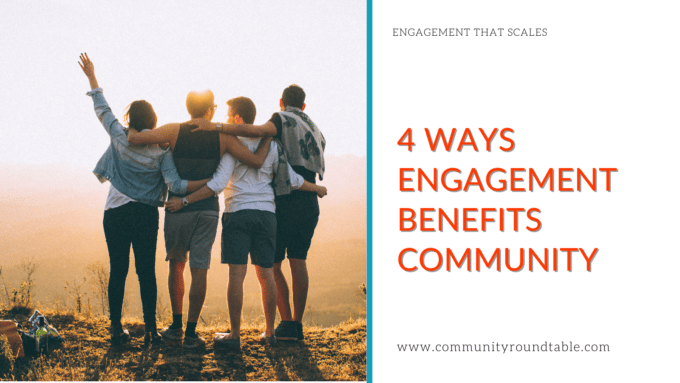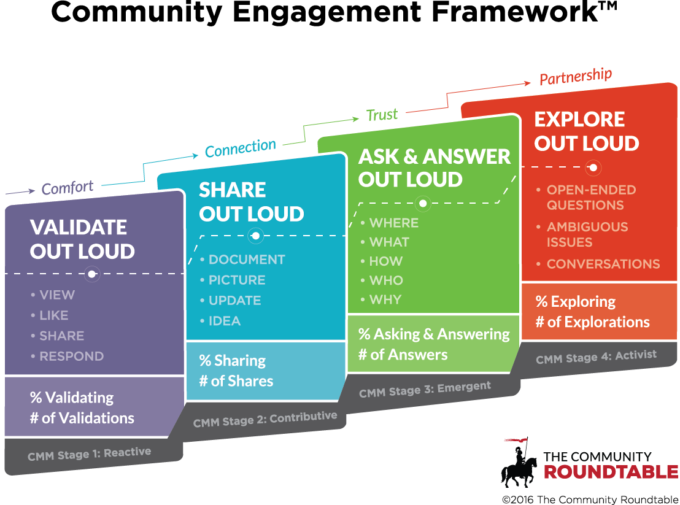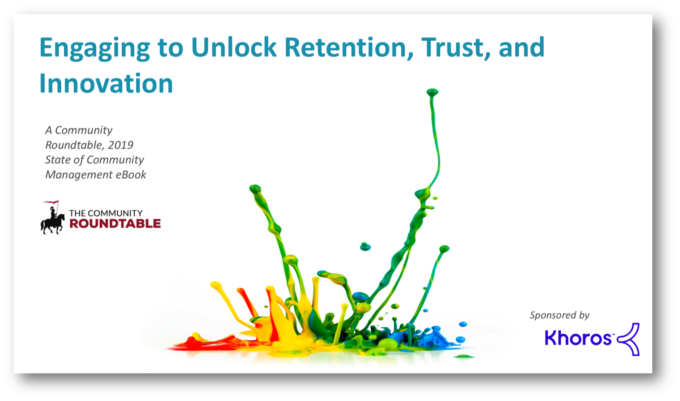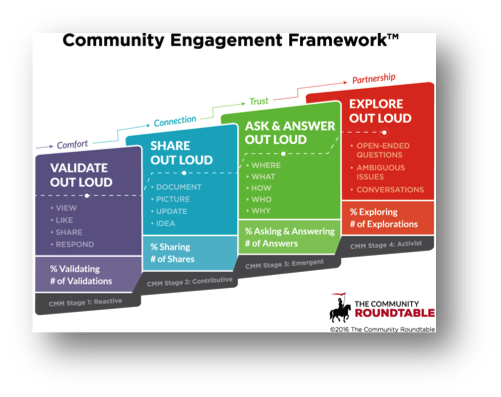The most effective communities strike the balance of a well-crafted shared value. Communities help individual members feel seen and heard. That potent combination leads to members feeling empowered and more likely to engage; they ask more questions, problem-solve, and tackle leadership initiatives they might not have considered otherwise. In other words, when people feel their voice matters — they use it. This leads to a powerful cycle of benefit and contribution.
Empowered individuals are engaged, constructive, and productive, which contributes positively to the community culture around them.
Engaged and empowered members are also good for the organization that runs each community. A well-run community that provides real value to its members positions an organization as trustworthy, adaptive, and engaging.
Your community team challenge: maintaining this delicate shared value balance.

Creating engaged members
With great power, comes great responsibility (yes, we borrowed the quote from Spider-Man but it doesn’t make it any less true!), and there are huge opportunities for organizations here. Recognizing and nurturing the communities (and their members) that already exist create value for both the community member and the organization (we love shared value!).
If you’re unsure where to start, our Community Engagement Framework™ lays out the four stages of culture change in communities: moving from quid pro quo relationships to collaborative ones. As the transition happens, you’ll see the levels in which your members explore out loud — a core attribute of collaborative and innovative cultures — increase.

Mapping the stages of the Community Engagement Framework™ to the ways in which member engagement positively impacts communities is easy to see.
Four Ways Engagement Benefits Communities
- Validation leads to connections: Members find confidence in their decision to join the community by browsing, viewing, liking, and sharing content they find on the network. They will continue to expand their engagement as they become connected to the community and its members.
- Sharing leads to validation. The Care Bears got it right – sharing is caring. Members feel like they belong when they comment on threads, share their own content and thoughts — and get validation from others’ reactions.
- Asking leads to trust. Trust in the community occurs when members ask for help and get useful responses.
- Exploring leads to belonging and participation. When members explore the community they develop a sense of belonging by participating in open-ended discussions, sharing different perspectives, and being open to brainstorming. This is where the real value starts to build, as engaged members create engaged members.
Want to learn more? Download the Community Engagement Framework™ today to get started.


